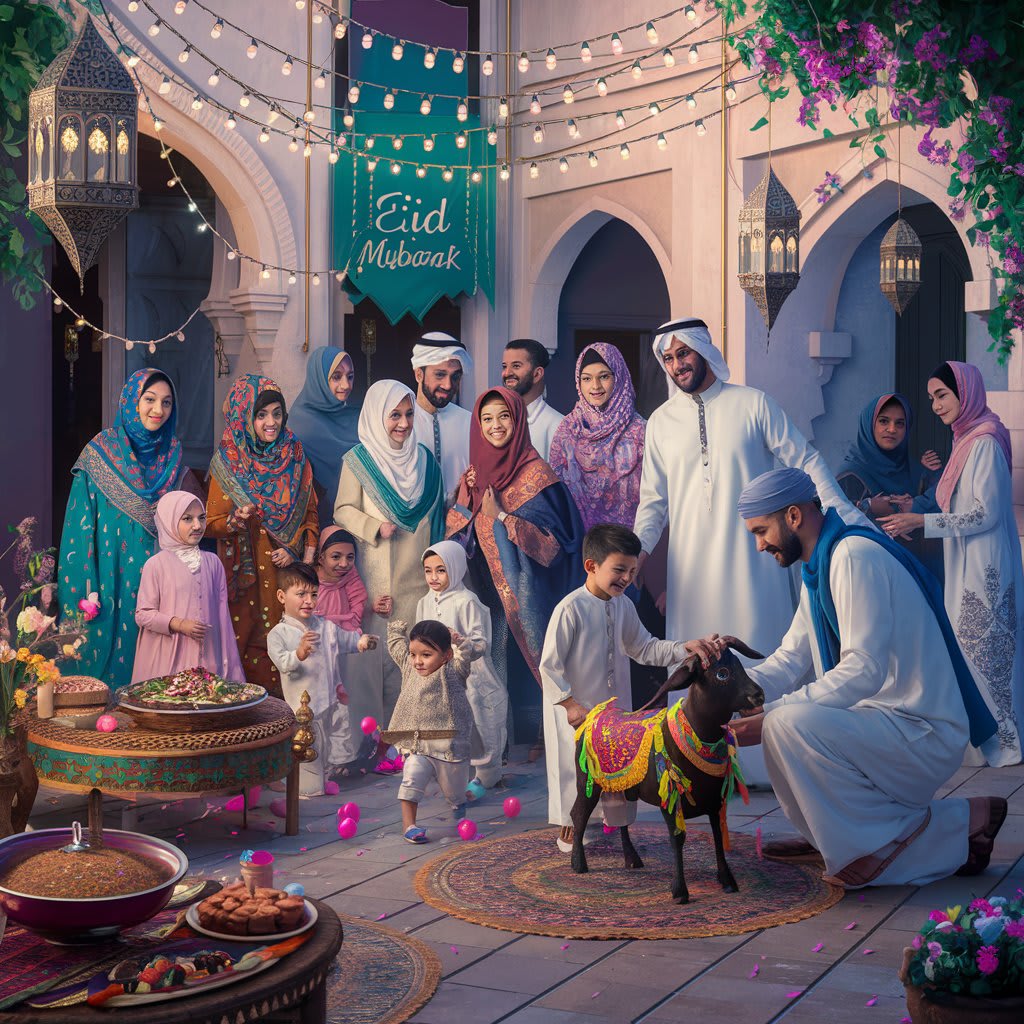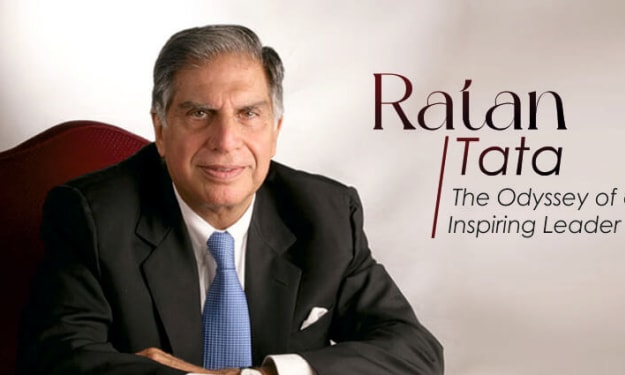Celebrating Eid-ul-Adha: A Festival of Sacrifice and Blessings
Understanding the Significance and Traditions of Eid-ul-Adha

Eid-ul-Adha, also known as the "Festival of Sacrifice," is one of the most significant Islamic holidays celebrated by Muslims worldwide. It falls on the 10th day of Dhu al-Hijjah, the last month of the Islamic lunar calendar, and marks the end of the Hajj pilgrimage to Mecca. The festival commemorates the willingness of Prophet Ibrahim (Abraham) to sacrifice his son Ismail (Ishmael) as an act of obedience to God. However, God provided a male m to sacrifice instead.
The celebration of Eid-ul-Adha involves several important rituals and traditions:
1. Prayer: The day of Eid-ul-Adha begins with a special congregational prayer known as Salat al-Eid. This prayer is typically held in large open spaces or mosques and involves a sermon that highlights the significance of the festival and the importance of sacrifice and charity. The prayer is a moment for Muslims to come together, seek blessings, and reaffirm their faith and devotion to Allah.
2. Sacrifice: Central to Eid-ul-Adha is the act of Qurbani (sacrifice). Families who can afford to do so sacrifice an animal, such as a sheep, goat, cow, or camel. The meat from the sacrifice is distributed among family, friends, and those in need, ensuring that everyone can partake in the festivities. This practice symbolizes the willingness to give up things that are of benefit to us or close to our hearts to follow Allah's commands. The act of sacrifice serves as a reminder of Ibrahim's devotion and the importance of selflessness and charity.
3. Charity: Eid-ul-Adha emphasizes the importance of giving and sharing. Muslims are encouraged to donate to the less fortunate, reflecting the values of empathy and compassion. The distribution of meat ensures that even those who are less privileged can enjoy a hearty meal during the celebrations. This charitable aspect of the festival underscores the Islamic principles of community support and caring for others, fostering a sense of solidarity and mutual aid.
4. Feasting and Gathering: After the sacrifice, families and friends come together to share meals and celebrate. Traditional dishes vary by region but often include the meat from the sacrificed animal.
5.Hajj Pilgrimage: For those undertaking the Hajj pilgrimage, Eid-ul-Adha marks the culmination of their spiritual journey. Hajj, one of the five pillars of Islam, involves a series of rites performed in and around Mecca. The pilgrims participate in the sacrificial rites and other rituals, embodying the spirit of unity and equality among Muslims. The completion of Hajj during Eid-ul-Adha is a momentous occasion, signifying spiritual renewal and a deeper connection with Allah.
Best Wishes for Eid-ul-Adha
1.Warm Wishes:
May the blessings of Allah fill your life with happiness and open all the doors of success now and always. Eid Mubarak!
2. Joy and Prosperity:
Wishing you and your family a joyful and blessed Eid-ul-Adha. May this day bring you peace, happiness, and all your heart's desires.
3.Peace and Love:
Eid Mubarak! May this Eid bring joy, love, and peace to your life and those around you.
4.Sacrifice and Gratitude:
On this holy occasion, may you find your prayers answered and your sacrifices rewarded. Eid Mubarak!
5 .Unity and Happiness:
May the spirit of Eid bring you closer to your loved ones and fill your heart with joy and happiness. Eid Mubarak!
6 .Health and Prosperity:
Sending you warm wishes on Eid-ul-Adha and hoping that it brings joy and good health to you and your family. Eid Mubarak!
7.Blessings and Good Fortune:
may Allah bless you with His choicest blessings and fill your life with joy, happiness, and prosperity. Eid Mubarak!
8. Faith and Joy:
May your faith and devotion to Allah be rewarded with peace, joy, and prosperity on this blessed day. Eid Mubarak!
Each wish encapsulates the essence of Eid-ul-Adha, emphasizing sacrifice, gratitude, and the importance of community and charity.
About the Creator
Enjoyed the story? Support the Creator.
Subscribe for free to receive all their stories in your feed. You could also pledge your support or give them a one-off tip, letting them know you appreciate their work.





Comments (1)
Quite interesting. I am probably wrong but this day seems like a combination of some Christian holidays.